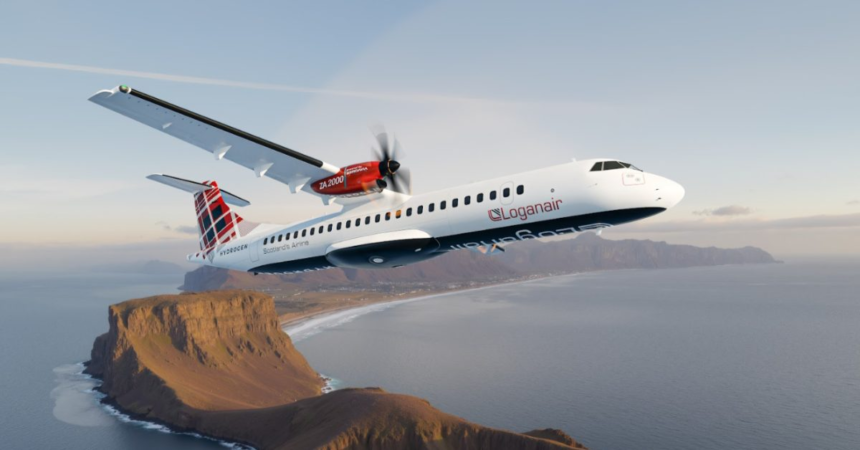Scotland’s Loganair is teaming up with ZeroAvia to pave the way for sustainable aviation by developing new zero-emission options. This collaboration aims to enable Loganair’s 40-80 passenger capacity aircraft to operate emission-free on regional routes across the UK and Europe.
ZeroAvia, which recently secured $150 million in funding from Airbus and American Airlines, is making strides in the certification process for its ZA600 600 kW hydrogen fuel cell powertrain for 10-20 seat aircraft with the UK’s CAA. Additionally, the company is working on a more powerful modular engine called ZA2000, designed for use in 40-80 seat aircraft like the ATR 42 and 72, of which Loganair owns more than twenty.
Loganair CEO Luke Farajallah expressed optimism about the partnership, highlighting the potential of ZeroAvia’s technology to drive a greener future for the airline industry. The collaboration is seen as a significant step towards achieving ambitious sustainability goals.
The ZA2000 engine, described as a hydrogen-electric powertrain, operates by using hydrogen fuel cells to generate electricity that powers electric motors turning propellers. With regional turboprop aircraft flying below typical contrail formation levels, ZeroAvia claims that its powertrain results in effectively zero in-flight emissions.
One of the key advantages of hydrogen-electric engines like the ZA2000 is the potential cost savings for airlines. These engines require lower maintenance, resulting in decreased downtime for fleets. Moreover, hydrogen fuel is projected to be more cost-effective than traditional kerosene over time.
While hydrogen’s viability as a sustainable fuel source has faced skepticism in ground transportation, its prospects in aviation remain to be seen. With various hydrogen projects across industries experiencing setbacks, the aviation sector is exploring new avenues for reducing emissions and operating more sustainably.
The collaboration between Loganair and ZeroAvia represents a significant step towards achieving greener aviation practices. By leveraging innovative technology and sustainable solutions, the partnership aims to set a new standard for regional flights in the UK and Europe.
Overall, the Loganair-ZeroAvia partnership signifies a bold step towards a more sustainable future for the aviation industry. As advancements in hydrogen-electric technology continue to progress, the potential for emission-free air travel becomes increasingly feasible. This collaboration serves as a testament to the industry’s commitment to reducing its environmental impact and embracing innovative solutions for a greener tomorrow.







